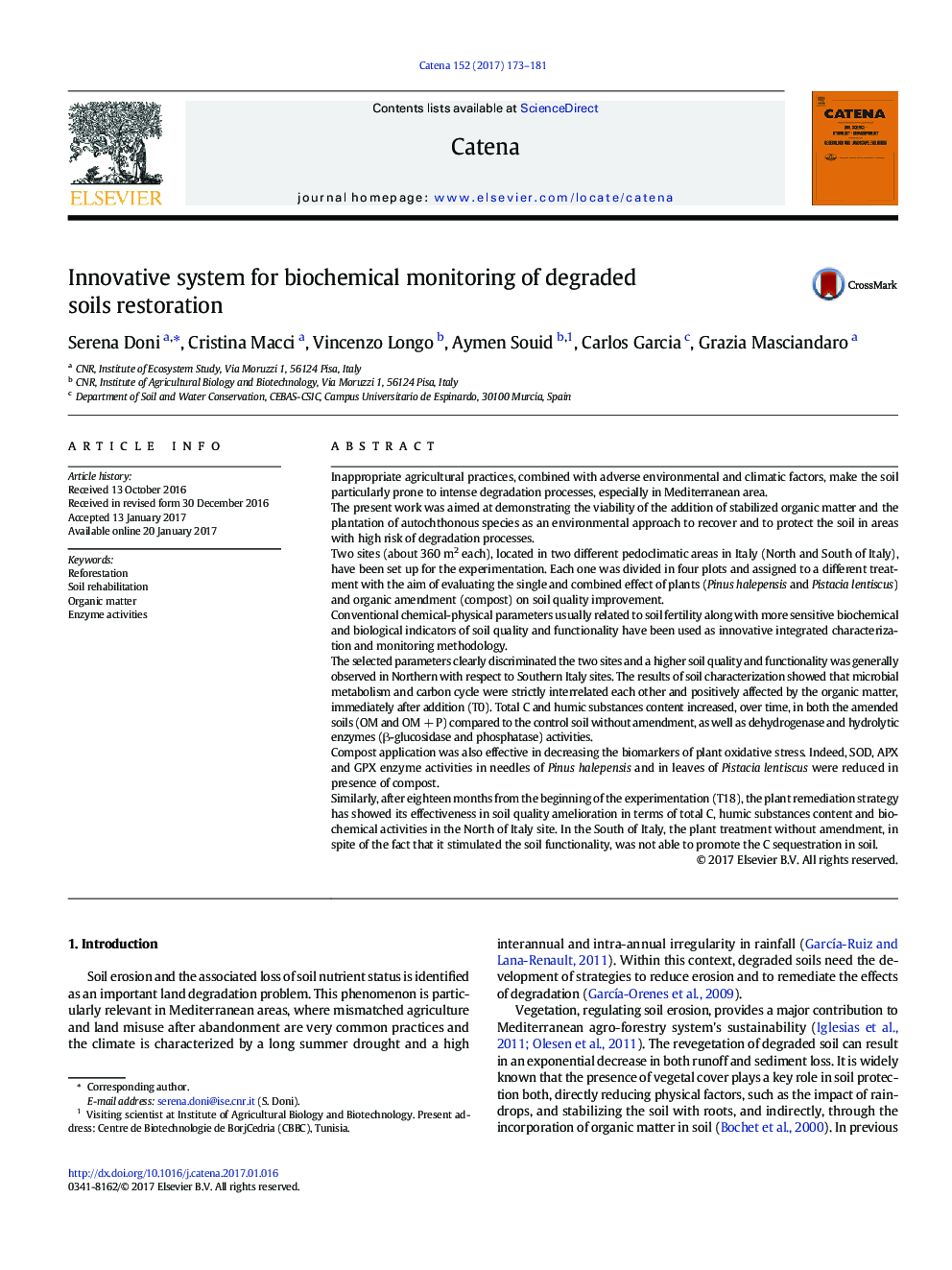| کد مقاله | کد نشریه | سال انتشار | مقاله انگلیسی | نسخه تمام متن |
|---|---|---|---|---|
| 5769957 | 1629202 | 2017 | 9 صفحه PDF | دانلود رایگان |
- The combination of plants and exogenous organic matter was suitable to recover degraded soils.
- An improvement of the biochemical properties of soils and plants was obtained.
- Compost application was also effective in decreasing the plant oxidative stress.
Inappropriate agricultural practices, combined with adverse environmental and climatic factors, make the soil particularly prone to intense degradation processes, especially in Mediterranean area.The present work was aimed at demonstrating the viability of the addition of stabilized organic matter and the plantation of autochthonous species as an environmental approach to recover and to protect the soil in areas with high risk of degradation processes.Two sites (about 360 m2 each), located in two different pedoclimatic areas in Italy (North and South of Italy), have been set up for the experimentation. Each one was divided in four plots and assigned to a different treatment with the aim of evaluating the single and combined effect of plants (Pinus halepensis and Pistacia lentiscus) and organic amendment (compost) on soil quality improvement.Conventional chemical-physical parameters usually related to soil fertility along with more sensitive biochemical and biological indicators of soil quality and functionality have been used as innovative integrated characterization and monitoring methodology.The selected parameters clearly discriminated the two sites and a higher soil quality and functionality was generally observed in Northern with respect to Southern Italy sites. The results of soil characterization showed that microbial metabolism and carbon cycle were strictly interrelated each other and positively affected by the organic matter, immediately after addition (T0). Total C and humic substances content increased, over time, in both the amended soils (OM and OM + P) compared to the control soil without amendment, as well as dehydrogenase and hydrolytic enzymes (β-glucosidase and phosphatase) activities.Compost application was also effective in decreasing the biomarkers of plant oxidative stress. Indeed, SOD, APX and GPX enzyme activities in needles of Pinus halepensis and in leaves of Pistacia lentiscus were reduced in presence of compost.Similarly, after eighteen months from the beginning of the experimentation (T18), the plant remediation strategy has showed its effectiveness in soil quality amelioration in terms of total C, humic substances content and biochemical activities in the North of Italy site. In the South of Italy, the plant treatment without amendment, in spite of the fact that it stimulated the soil functionality, was not able to promote the C sequestration in soil.
Journal: CATENA - Volume 152, May 2017, Pages 173-181
